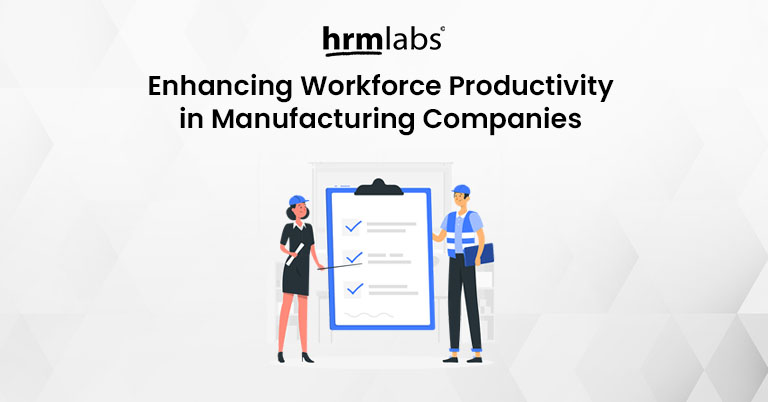In Singapore’s competitive manufacturing companies, managing a large workforce with diverse skill levels and ensuring compliance with strict safety regulations is a hard challenge. This is where Human Resource Management Systems (HRMS) come into the game. Providing solutions to enhance workforce productivity and streamline HR processes.
Here’s a closer look at how HRMS can address common challenges faced by manufacturing companies in Singapore.
The Problem in Manufacturing Companies
Manufacturing companies often deal with several HR-related challenges:
- Skill Tracking and Training: Keeping track of employee skills and certifications is critical. Especially in an industry where safety and precision are paramount.
- Attendance and Overtime Management: Accurate tracking of attendance and managing overtime to ensure fair compensation and compliance with labor laws can be complex.
- Performance Metrics: Monitoring productivity and identifying areas for improvement require robust performance tracking tools.
The Solution: Implementation of HRMS
HRMS can significantly improve the efficiency and effectiveness of HR operations in manufacturing companies. Here’s how manufacturing industry can utilize HRMS to overcome their challenges:
Skill Tracking and Training
- The HRMS at manufacturing industry allowed the company to maintain detailed records of employee skills and certifications. This enabled the identification of skill gaps and the planning of necessary training programs.
- Automated reminders ensured that employees completed mandatory safety training on time, reducing the risk of non-compliance with safety regulations.
Attendance and Overtime Management
- The system accurately tracked employee attendance and managed overtime. Ensuring that employees were fairly compensated and that the company remained compliant with labor laws.
- By using biometric systems, the HRMS eliminated issues related to proxy attendance, ensuring accurate and reliable attendance records.
Performance Metrics
- Manufacturing industry can use the HRMS to set and track performance metrics, allowing managers to monitor productivity effectively.
- The system provided tools to identify areas needing improvement, facilitating targeted interventions to boost productivity.
Results Achieved
The implementation of HRMS brought about significant improvements:
Increased Productivity
- With targeted training programs based on accurate skill tracking, workforce productivity at manufacturing industry can be increased by 20%.
- The ability to monitor performance metrics helped managers make informed decisions, further enhancing productivity.
Compliance with Safety Regulations
- Automated training reminders ensured 100% compliance with safety regulations, significantly reducing the risk of workplace accidents and legal issues.
- The HRMS kept all compliance-related data organized and easily accessible, making it simpler to demonstrate compliance during inspections
Efficient Overtime Management
- Accurate tracking of overtime and fair compensation improved employee satisfaction and reduced disputes related to overtime pay.
- The HRMS streamlined payroll processes, making it easier to manage complex overtime calculations.
The Role of HRMS in Transforming Manufacturing Industry HR Operations
HRMS solutions are transforming the HR landscape in manufacturing by automating and streamlining various HR processes:
- Automation of Routine Tasks: HRMS can automate routine tasks such as payroll processing, attendance tracking, and compliance reporting, freeing up HR professionals to focus on strategic initiatives.
- Enhanced Data Management: These systems provide centralized and easily accessible databases for employee information, ensuring that data is accurate, up-to-date, and secure.
- Improved Decision-Making: Advanced analytics and reporting capabilities of HRMS enable better decision-making by providing insights into workforce trends and performance metrics.
Conclusion
For manufacturing companies in Singapore, adopting an HRMS can lead to significant improvements in productivity, compliance, and employee satisfaction. The case manufacturing companies illustrate how skill tracking, automated training, and efficient attendance management can transform HR operations and drive business success. By leveraging the power of HRMS, manufacturing companies can navigate the complexities of HR management and create a more productive and compliant workforce.
To take your HR management to the next level, consider HRMLabs, the most powerful and flexible HRMS solution designed to meet the unique needs of the manufacturing industry in Singapore.
Contact HRMLabs to get the perfect HR and Payroll for your business!



